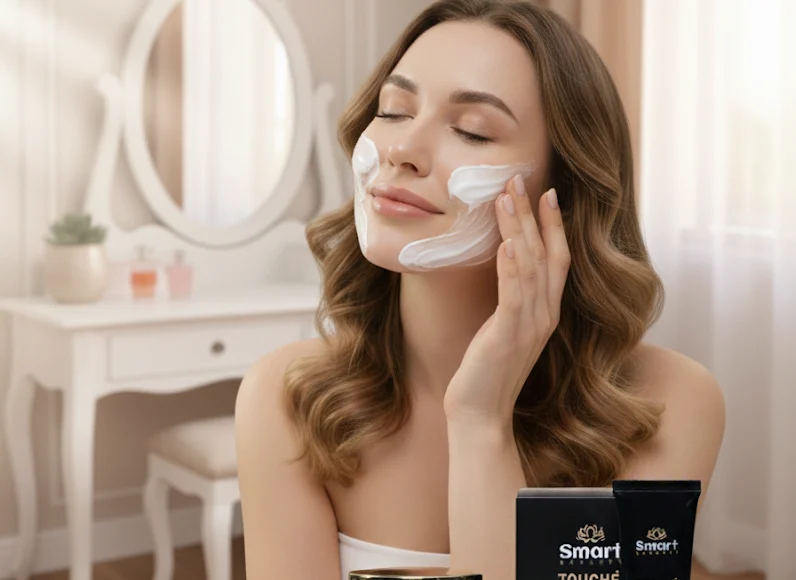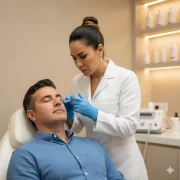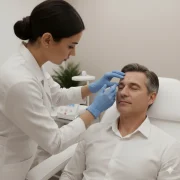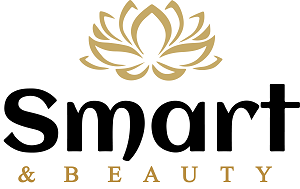It’s a question that resonates in many minds when looking at the skincare aisle: “Does my skin already need collagen and vitamins?” The truth is, there’s no universal “magic” age, but there are clear guidelines that can help you make the best decision to keep your skin radiant and healthy.
Collagen is the most abundant protein in our body, responsible for skin elasticity and firmness. Vitamins, such as C and E, are powerful antioxidants that protect the skin from environmental damage and promote its regeneration. Understanding when to incorporate them into your routine is key.
The Truth About Collagen: When Does It Start to Decline?
Our body naturally produces collagen, and this production is robust during youth. However, from approximately 25 years of age, collagen production gradually begins to decrease. Factors such as sun exposure, pollution, stress, and diet can accelerate this process, leading to the appearance of the first fine lines and a slight loss of firmness.* Vitamins: Always On Board!
Unlike collagen, vitamins are essential for the skin at any age. From adolescence, and especially in your twenties, it is crucial to protect the skin from external aggressors.* Vitamin C: A powerful antioxidant that brightens, evens skin tone, and stimulates collagen production. It’s excellent for preventing sun damage and reducing spots.
* Vitamin E: Another antioxidant that moisturizes, soothes, and protects skin cells from oxidative damage.
* Vitamin A (Retinol): The anti-aging superstar. While you can start with gentle formulations in your mid-twenties, its more intensive use is usually recommended from the age of 30 or when visible signs of aging are already present.
Guide by Decades:
In Your 20s: Prevention and Protection
Focus: Daily sun protection, hydration, and preventing future damage.Collagen: Topical supplementation is not strictly necessary to stimulate production at this stage, but creams containing collagen peptides can help reinforce the skin barrier. The most important thing is to protect the collagen you already have.
Vitamins: Vitamins C and E are your best friends. Look for lightweight serums or creams that contain them to combat free radicals and maintain radiance.
In Your 30s: Maintenance and First Signs
Focus: Addressing the first fine lines, maintaining elasticity, and protecting against premature aging.* Collagen: This is an excellent time to introduce products that help stimulate collagen production. Creams with peptides and amino acids that are collagen precursors are very beneficial.
* Vitamins: Keep Vitamins C and E. Consider introducing Retinol (Vitamin A) in low concentrations, 2-3 nights a week, to stimulate cell renewal and collagen production.
In Your 40s and Beyond: Repair and Firming
Focus: Minimizing wrinkles, improving firmness and elasticity, and repairing accumulated damage.* Collagen: Creams with hydrolyzed collagen, peptides, and growth factors are highly recommended. You might also consider oral collagen supplements under supervision.
* Vitamins: Vitamins C, E, and Retinol (Vitamin A) become even more crucial. You could opt for higher concentrations of Retinol (if your skin tolerates it) and look for products with niacinamide (Vitamin B3) for the skin barrier.
Listening to your skin is fundamental. While age guidelines are helpful, individual factors such as your lifestyle, genetics, and environmental exposure play a significant role. The crucial thing is to start with a skincare routine that includes sun protection, adequate hydration, and cleansing in your 20s, and gradually introduce powerful active ingredients like vitamins and collagen precursors as your skin needs them.
Always consult with a dermatologist or skincare specialist for a personalized plan. They can recommend the ideal products and treatments for your skin type and specific concerns.

Item added to cart.
Can we help you?
Open Chat




